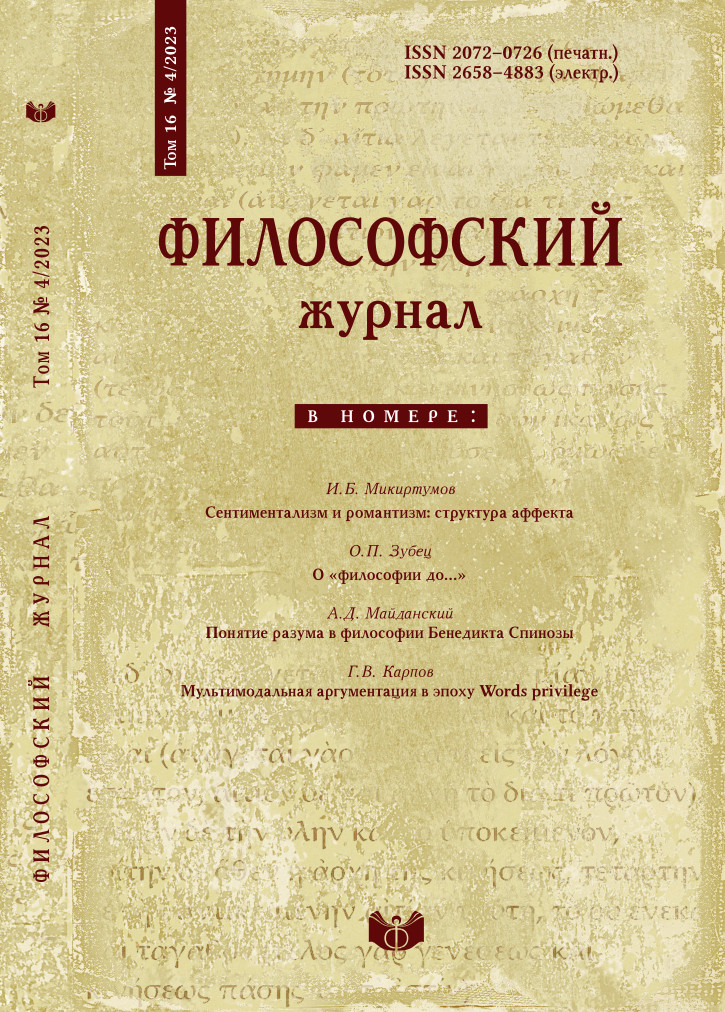The concept of reason in the philosophy of Benedict Spinoza
DOI:
https://doi.org/10.21146/2072-0726-2023-16-4-124-143Keywords:
intellect, reason, imagination, cognition, eternity, virtue, highest good, affectsAbstract
Spinoza teaches that the nature of things expresses itself in two ways: in motion and in the world of bodies, on the one hand, and in the intellect with its world of ideas, on the other. Physical bodies are in perpetual motion – arising, changing, disappearing; since the human body also participates in these processes, they are perceived by senses. Spinoza calls the knowledge of sensual properties and duration of the existence of bodies “imagination”. The human mind processes images of bodies with the help of a special kind of abstractions, the “beings of reason”, and then it forms, on the basis of “general concepts”, adequate ideas about the “inner essences” of things, their “order and connection”, i.e. about the causes for the existence of things and their causal relations. Scientific definitions, formulae and models represent these causes and relations in a perfectly pure form – “under a species of eternity”. The article shows how Spinoza delineates the limits of human cognition: they are set by the nature of mind as the idea of the body (man consists of two modes of substance – the living body and its idea/mind in the infinite intellect). The wider the scope of the body’s activity, the more our mind knows about the world and about itself. The last section of the article describes the relationship of reason to virtue, logic to ethics, and characterises the way of life “according to the guidance of reason”. Social life appears to Spinoza as a battle of “passions”, the passive affects of solidarity and enmity. Society cannot live according to the guidance of reason, but our minds can find a form of government that minimises the damage caused by the “blind affects” of the rulers and the crowd: Spinoza considered democracy to be the “completely absolute state”.






